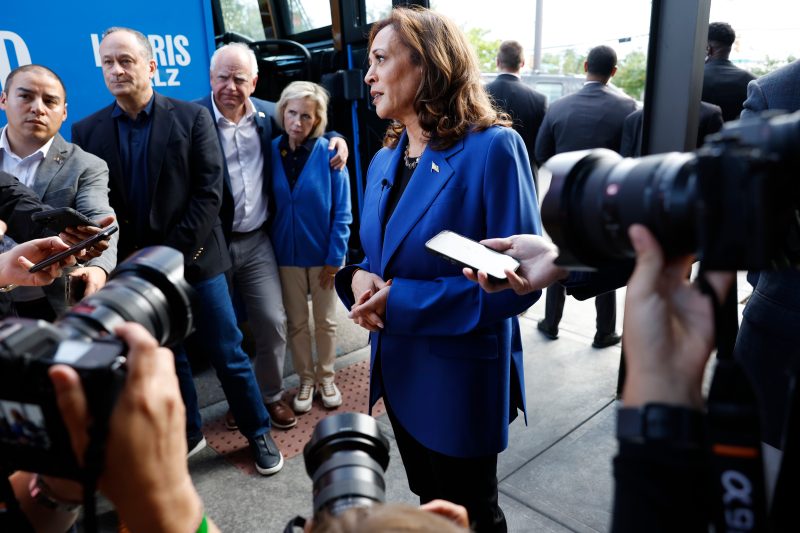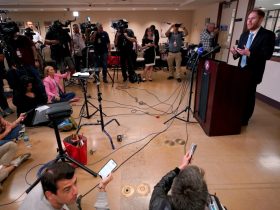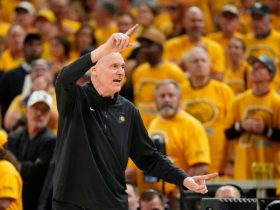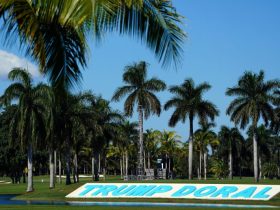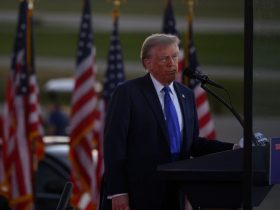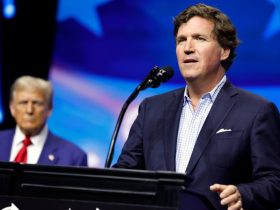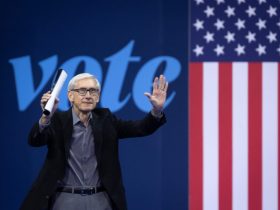Vice President Kamala Harris’s recent anti-price-gouging push has met with significant skepticism from policy analysts and even some normally politically aligned commentators.
They’ve suggested that her somewhat vague “federal ban on price gouging” to combat inflation is unworkable, counterproductive, a “gimmick” and pandering. Many have noted that Richard M. Nixon tried price controls in August 1971, and it went poorly.
In fact, Nixon had just months earlier privately conceded that price controls — and I’m skipping over some Nixonian colorful language here — “will not work.” But he pressed forward anyway, apparently for political reasons.
The Nixon comparison isn’t totally apt, and Harris seemed to temper her proposal somewhat when it was actually rolled out.
But there’s a reason Nixon pulled a 180, and there’s clearly a political reason for Harris to play up this issue, pander or not.
It’s because lots and lots of Americans blame price gouging for inflation. (Whether such gouging actually exists is a point of contention, but the Federal Trade Commission has said some large grocery chains have increased prices more than needed to cover extra costs.)
And lots and lots of Americans like the idea of the federal government doing something about it. That appears to include when you use the language favored by its critics, “price controls.”
Americans blame lots of things for inflation. But price gouging is perhaps the perceived culprit where the most bipartisan consensus emerges.
A late 2021 Fox News poll showed 75 percent of Americans blamed “price gouging by companies” at least somewhat. That was nearly as much as the 78 percent that blamed the most obvious culprit, the coronavirus pandemic.
About 4 in 10 Republicans, Democrats and independents agreed that price gouging was “very responsible” for inflation. And independents were more apt to blame price gouging than they were to blame even President Joe Biden.
More recent polling suggests price gouging has grown as a boogeyman:
A YouGov survey released in July 2023 showed Americans’ No. 1 inflation offender — out of 11 factors mentioned — was “large corporations seeking maximum profits.” Even 44 percent of Republicans blamed that “a lot.”
A late 2023 Ipsos/Yahoo Finance poll showed price gouging was independents’ top culprit among seven options.
And a Financial Times/Michigan Ross poll this year showed those blaming large corporations for charging more amid inflation rising from 54 percent six months earlier to 63 percent. That was significantly more than the 38 percent who blamed Democrats’ policies.
Americans also see government action as both effective and desirable.
That YouGov poll showed about half of Americans thought that having the government set price limits (51 percent) and fining companies for price gouging (49 percent) would at least probably decrease inflation. Significantly fewer — about 3 in 10 — felt these ideas wouldn’t work. (The rest offered no opinion.)
The only ideas perceived as being more effective, out of 16 tested, were increasing oil production and investing in the supply chain — and only marginally so.
Just because people think these things would work doesn’t necessarily mean they want them, of course. There is risk in Harris’s proposal looking heavy-handed and too big-government. Donald Trump over the weekend labeled Harris’s idea “SOVIET Style Price Controls.”
But people do say they want such measures — even when you characterize them as “price controls.”
A late 2023 CBS News/YouGov poll asked whether people approved of “government price controls — that is, laws that limit the amount that companies can raise prices, or charge for products and services.”
Americans approved nearly 2-to-1, and even a majority of Republicans (56 percent) approved.
You begin to see why such a proposal, however practical or seriously intended, would have appeal for the Harris campaign. It’s not just a potent boogeyman; it’s a potent boogeyman that deflects blame from the administration that has been in charge these past 3½ years.
And the Harris campaign has surely demonstrated a willingness to play up the populism and take some liberties in its appeals to voters.
Its recent plan to get rid of taxes on tips — after Trump proposed a different version of the same thing — appeared calculated to offset any potential benefit Trump might glean in Nevada, a swing state featuring many service workers. But some experts say neither proposal is likely to be enacted, and they’re skeptical they’d even work.
Judging by these numbers, Harris might have just one-upped Trump on the populism.

